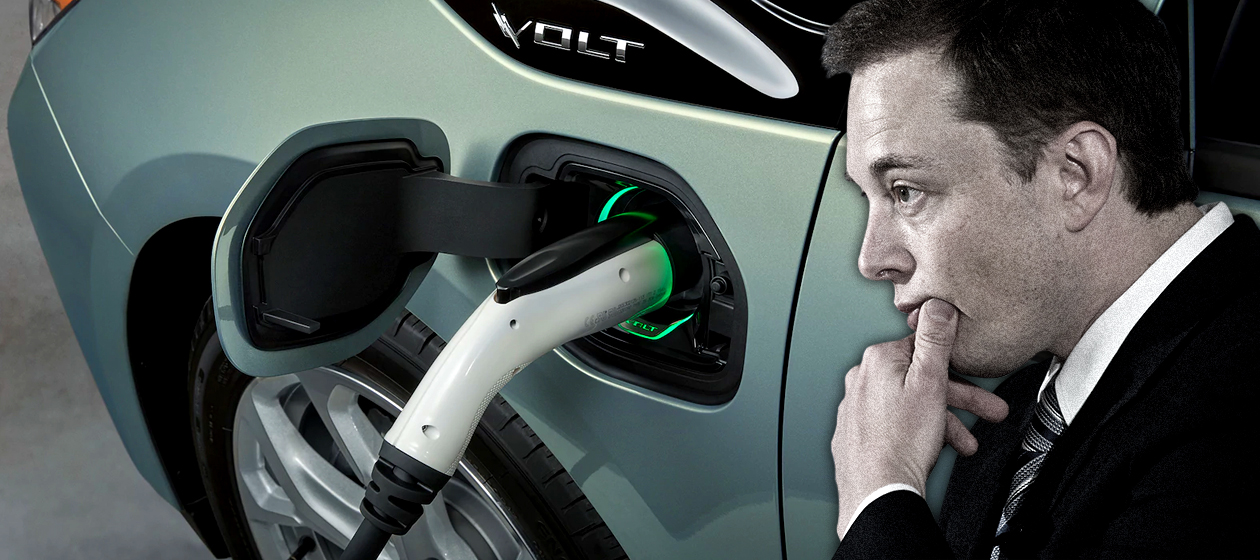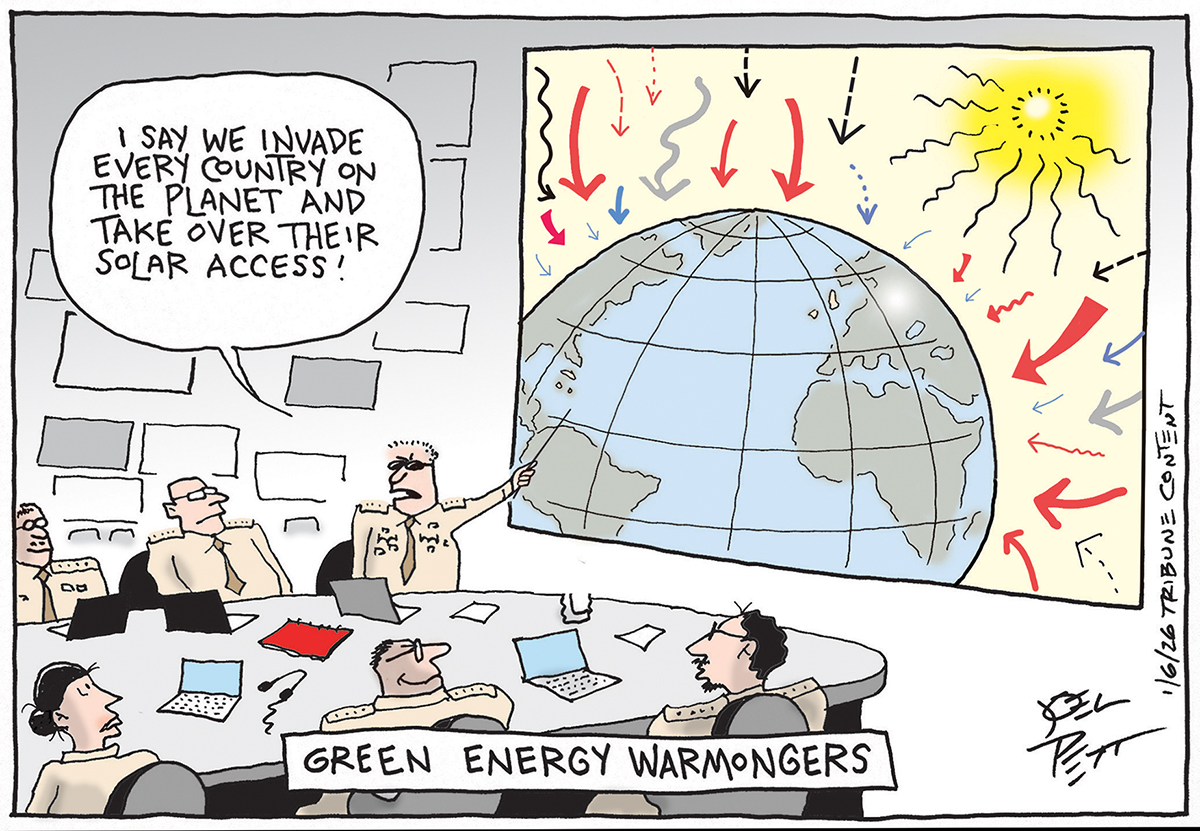The middle class doesn't need Teslas. It needs Chevy Volts.
In praise of the plug-in hybrid


Is Tesla's dream of an affordable middle-class all-electric vehicle dead? It's not looking good.
Consumer Reports just found "flaws — big flaws" in the braking performance, control panel, and general quality of the Model 3, Tesla's ostensible electric car for the everyman. The company took issue with some of the findings, but Consumer Reports still declined to recommend the vehicle. On top of that, Tesla CEO Elon Musk just admitted the company may not remain financially viable if it starts shipping Model 3s at the planned $35,000 price. It will have to start with not-at-all-middle-class-friendly $50,000 models — or even $78,000 models — and hopefully work its way down to the entry-level one.
But if the Tesla dream dies, it's not a death knell for an affordable electric car. That's because there's already an affordable electric car on the market: the plug-in hybrid.
The Week
Escape your echo chamber. Get the facts behind the news, plus analysis from multiple perspectives.

Sign up for The Week's Free Newsletters
From our morning news briefing to a weekly Good News Newsletter, get the best of The Week delivered directly to your inbox.
From our morning news briefing to a weekly Good News Newsletter, get the best of The Week delivered directly to your inbox.
Let's start with Tesla. The reason the automaker is running into so much trouble is that it's attempting something pretty ambitious. It's aiming for batteries with around 300 miles of charge, which requires pushing some new and pretty expensive technology to its feasible limits. On top of that, Tesla wants to mass produce these batteries and electric motors quickly, and cram that system into a car that delivers a high-quality ride and all the modern bells and whistles. And they want to deliver the whole package for $35,000.
I don't think investors should write Tesla off just yet. But it's entirely possible the company bit off more than it can chew.
Fortunately, consumers don't actually need what Tesla is attempting for an electric car to work for them. A battery that can do 300 miles may sound great, especially given how much range anxiety people have about electric vehicles. But if the goal is to just minimize the number of miles driven using carbon-spewing combustion, it's actually massive overkill. As of 2014, almost 80 percent of Americans drove 40 miles or less for their roundtrip daily commute. If these people could recharge their cars at home every night, they'd really just need a battery with 40 miles and some added cushion. That would electrify the vast majority of their time on the road. Then they'd just need a second option for road trips or days that happen to involve more driving.
Enter the plug-in hybrid. These are cars like the Honda Clarity and the Chevy Volt, which have batteries with a 47- and 53-mile range, respectively. Like traditional hybrids, they also have a gas-powered system. Unlike traditional hybrids, however, they don't use the electrical and gasoline systems in concert. They use the electrical system first and run down the charge. Only after its depleted do they switch over to the gas tank.
A free daily email with the biggest news stories of the day – and the best features from TheWeek.com
In other words, most days you'll never drive the car far enough to actually use any gasoline. Then you can just recharge the car at night. And you have the gas tank as backup, so there's no problem if you do deplete the battery. Finally, a battery with a 47- or 53-mile range is also a whole lot cheaper than Tesla's 300-mile monstrosity. Avoid the extra features, and you already buy a Clarity or a Volt for under $35,000.
Why haven't plug-in hybrids caught on?
Part of the problem is that even $35,000 isn't super competitive in the middle-class car market. A stripped-down version of the Toyota Camry, one of the most popular mid-sized cars out there, will go for under $24,000. Automakers will probably be able to make hybrids like the Clarity and the Volt cheaper and faster than Tesla, but they've still got some work to do.
Liberal-leaning states like California, as well as the federal government (under Barack Obama, at least), have tried to push car companies to improve this technology faster and use it more widely, by imposing stricter fuel efficiency standards and other regulations. Meanwhile, they've tried to herd consumers towards these vehicles by offering various tax breaks for buying them.
So if governments really want to see more plug-in hybrids on the road, the first thing they could do is just expand both policies.
Another part of the problem is charging infrastructure. Replenishing an electric battery is a lot less convenient than filling a gas tank. That's another advantage of the plug-in hybrid concept: You can charge it at night or when it's parked during work hours. But even this gets tricky.
To charge a plug-in hybrid in a single night or work day, you'll often need a 240-volt outlet. Not all home garages come with these (the 120-volt outlets are more common) and they can be a hassle to install. If you live in an apartment or condo complex and park in a lot or big garage, you're completely out of luck. Same for parking at the office.
Local or state governments, or even the federal government, could require developers to include 240-volt outlets in all new home garages, and at every space in new parking lots and parking garages. We'd also need a national infrastructure program to install 240-volt outlets in existing parking lots and, potentially, in existing homes as well. On top of that, we'd need to update a lot of local electrical grids to handle the throughput.
A Democratic administration and a cooperative Congress could make both policy changes, assuming 2020 goes their way. That could quickly electrify most of the miles Americans drive on a daily basis.
In other words, we don't need Tesla or Elon Musk to save us with further technological breakthroughs. Some clever thinking from the auto industry has already delivered cars that are basically affordable and that are virtually all-electric in effect. We just need national policy to catch up a bit.
Jeff Spross was the economics and business correspondent at TheWeek.com. He was previously a reporter at ThinkProgress.
-
 The Oberoi Beach Resort, Bali: a calm retreat in the heart of Seminyak
The Oberoi Beach Resort, Bali: a calm retreat in the heart of SeminyakThe Week Recommends Tradition meets modernity at this serene beachfront resort
-
 ‘No Other Choice,’ ‘Dead Man’s Wire,’ and ‘Father Mother Sister Brother’
‘No Other Choice,’ ‘Dead Man’s Wire,’ and ‘Father Mother Sister Brother’Feature A victim of downsizing turns murderous, an angry Indiana man takes a lender hostage, and a portrait of family by way of three awkward gatherings
-
 Political cartoons for January 11
Political cartoons for January 11Cartoons Sunday’s political cartoons include green energy, a simple plan, and more
